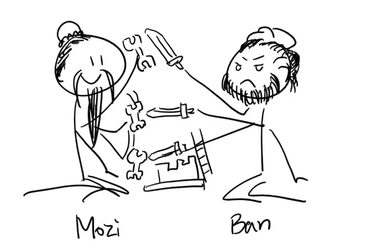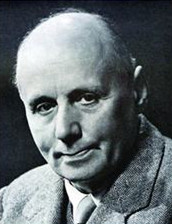The Profoudness in Humanities — Learning Philosophy in UWC
Issue date:2019-02-28In January, Shuyuan Wang, a DP1 student of UWC Changshu China, participated in the national round of the International Philosophy Olympiad (IPO) and won a gold medal. She will represent China to participate in the International Philosophy Olympiad in Italy in May this year. In this article, she shared her reflections on how she found her interest in philosophy and what philoshophy means to her.
A few years ago, my impression of “philosophy” was it being merely “esoteric theories between the pedants.” It lacks practicality and only pursues big, floating issues that may never be answered, such as “the meanings of life and universe.” It’s nothing more than word games between geniuses, right? In common sense, it has never entered the mainstream — abstract, meaningless, and useless — and people pity those who major in philosophy as they believe that career and life afterward will definitely be gloomy. I was sometimes intrigued by those interesting topics, but never took them seriously.
During the year when I was doing the Foundation Programme at UWC, a series of in-depth open discussions on our campus have made me realize the need for rational contemplation and diverse perspectives when viewing the issues we are facing with. As an initiative by members of our community, last year, the day of Nov. 10th, just one day before the Taobao online shopping carnival, was set up as the “Buy Nothing Day”. Max, the philosophy teacher, introduced the term “Consumerism” to us: when we click on the “buy” button one after another, have we thought of the possibility of being dominated by the materialistic satisfaction of “buying”? If we degrade our precious relationships and our personal happiness into merchandise, can we turn to pursue other forms of “satisfaction,” such as the happiness of working hard and loving others? I was surprised that we could re-evaluate the everyday behavior of myself and the community from such a critical and innovative perspective.
Sometime afterward, during a GIF (Global Issues Forum), our peer Bastian from Germany shared with the community the relationship and differences between nationalism and patriotism, with a special focus on WWII, and their implication today. Gradually, I got more familiar with those “-ism”s, and they weren’t as faraway from real life as I thought. Those one-hour sessions obviously couldn’t make me understand thoroughly those great concepts, but still served as a starting point for me to think about the meaning of everyday life.
These seemingly “faraway” concepts actually originated from our real life, and are crucial to our present and future decisions. The attitude of careful examination and re-evaluation is exactly the same with learning philosophy. The liberty, inclusion, and the pursuit of truth in our UWC community have made possible those thought-provoking conversations.
As the next term started, I picked “Philosophy” in my course selection. Navigating through the topics such as “human nature,” “personhood,” and “mind and body”, we got to gradually uncover and explore the most fundamental issues we are most concerned with —"what is it to be a human being.” The process was surprisingly down-to-earth, especially with those interesting thought experiments such as “Zombie Problem” or the “Turing Test”. Each of us had the freedom and responsibility to push forward the discussions by contributing our own ideas. Aggressiveness seldom took place, as everyone was participating in a friendly manner — not for “winning over,” but for mutual inspiration and pursuit of truth. Our philosophy teacher Jelena, who is always supportive and kind to students, took up the role as a facilitator in those discussions, raised questions, encouraged arguments, and made sure that everyone had his/her voice heard.

Our loving class (author on the left of the 2nd row)
The theories in the IB syllabus mainly cover ancient Greek and Western Philosophy with strict western-style analytical approach and deduction. But in our discussions, we can provide a wide array of diverse perspectives coming from different cultural contexts.

A painting showing the conflict between Plato's idealism and Aristotle's realism
With our own presentations during the “World Philosophy” activity, I got the chance to navigate through Alexandr Solzhenistyn’s critical contemplation of war and religion from the Soviet Union, Lalon Shah’s chants for the true meaning of life in ancient Bangladesh, the Ubuntu philosophy full of strength from the African sub-continent, and the revolutionary and inspiring Latin American philosophy.

Philosophy symposium
Philosophy could also be colored with different shades of cultural footmarks. I had the chance to introduce Chinese Philosophy with my peer Yu, both from a macroscopic dimension of the history of philosophy and the microscopic one focusing on the Mohism school of thought. We were interested in learning different world views from different cultures, especially when encountering those coincidences of similar theoretical focuses. The strongest feeling I got from this learning experience was the freedom granted by philosophical thinking: independent of constraints and biases. When you ponder deeply over the issues you are curious about, you may realize that those abstract concepts are easy to understand and have practical significance.

A picture from the Chinese Philosophy presentation—Intro of Mozi

A picture for “Mozi and Gongshu Ban” presenting Mozi’s attitude against war
In January, I participated in the national round of the International Philosophy Olympiad (IPO). Candidates from all over China, including students from other UWCs, all came for this competition (which is not so well known) by reaching out to the organizing committee with e-mails as there was no explicit sign-up process. Some were from international schools, some from local schools. After this Olympiad, some would wait for university offers back home, some would prepare for Gaokao, and all of our lives would be back as usual, but I felt fortunate to get to know people coming from afar with shared interest. As we talked, I realized that the freedom in UWC, which is somehow an ideal bubble, is an exception. Most of the times, learning something we like is not so easy, and you do need to overcome some obstacles. In high schools, extracurricular books may be confiscated for "taking away the time" we need to spend on preparing for the exams which will determine our future. Philosophy, viewed as the least important and useful subject, is always paid the least respect in the common sense of society.
Learning philosophy is usually associated with the conflict between the ideal world and reality. Staying in the theoretical realm, the contents in philosophy seem to have no relationship with the empirical world. On the individual level, driven by the desire to succeed in the material world, many people believe that philosophy is about a sense of idealism and has no practical benefits; career prospects for philosophy students are also limited. On the social level, due to the pressing need for economic and technological development, humanities are not being given enough attention since people don't think they yield tangible economic benefit and directly contribute to the improvement of people's livelihood. This also has impacted on the field of education. However, with the improvement of the quality of life, it's even more necessary to have a clear understanding of the present and of ourselves, in order not to get lost in the rapidly changing world. Philosophy and humanities provide us with yet another window to explore the world and the thinking of individuals. The benefits we get from them are irreplaceable, Humanities deserve much greater recognition in today’s world.
What if there were not only thirty or forty participants, but more? What if many more students participated in the philosophy Olympiads in China? Learning philosophy has given me the possibility to analyze the ways in which I, and the rest of the society, experience the world. One day, when more and more people discover the broad knowledge and understanding of the world that comes with studying philosophy, the stereotypical attitude towards the humanities may be weakened. Until then, I wish that more people can study philosophy to be able to free their thoughts and fall in “love of wisdom.”* Those thoughts may be just dreams for now, and it would not be easy to change the values of many people in the society. Still, I wish I could contribute to making such a change.
* “Philosophy” comes from Greek words meaning “love of wisdom.”










